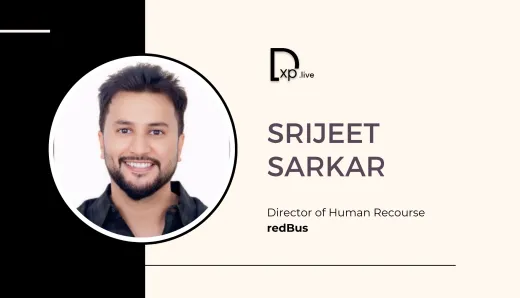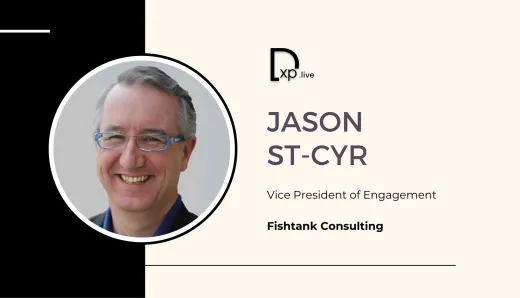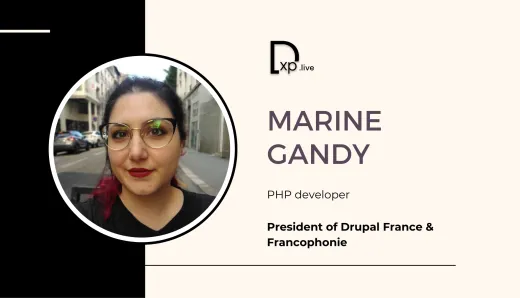Building the Future of Drupal with Michael Miles
Exploring Innovation, Community Leadership, and Technical Expertise in the Drupal Ecosystem
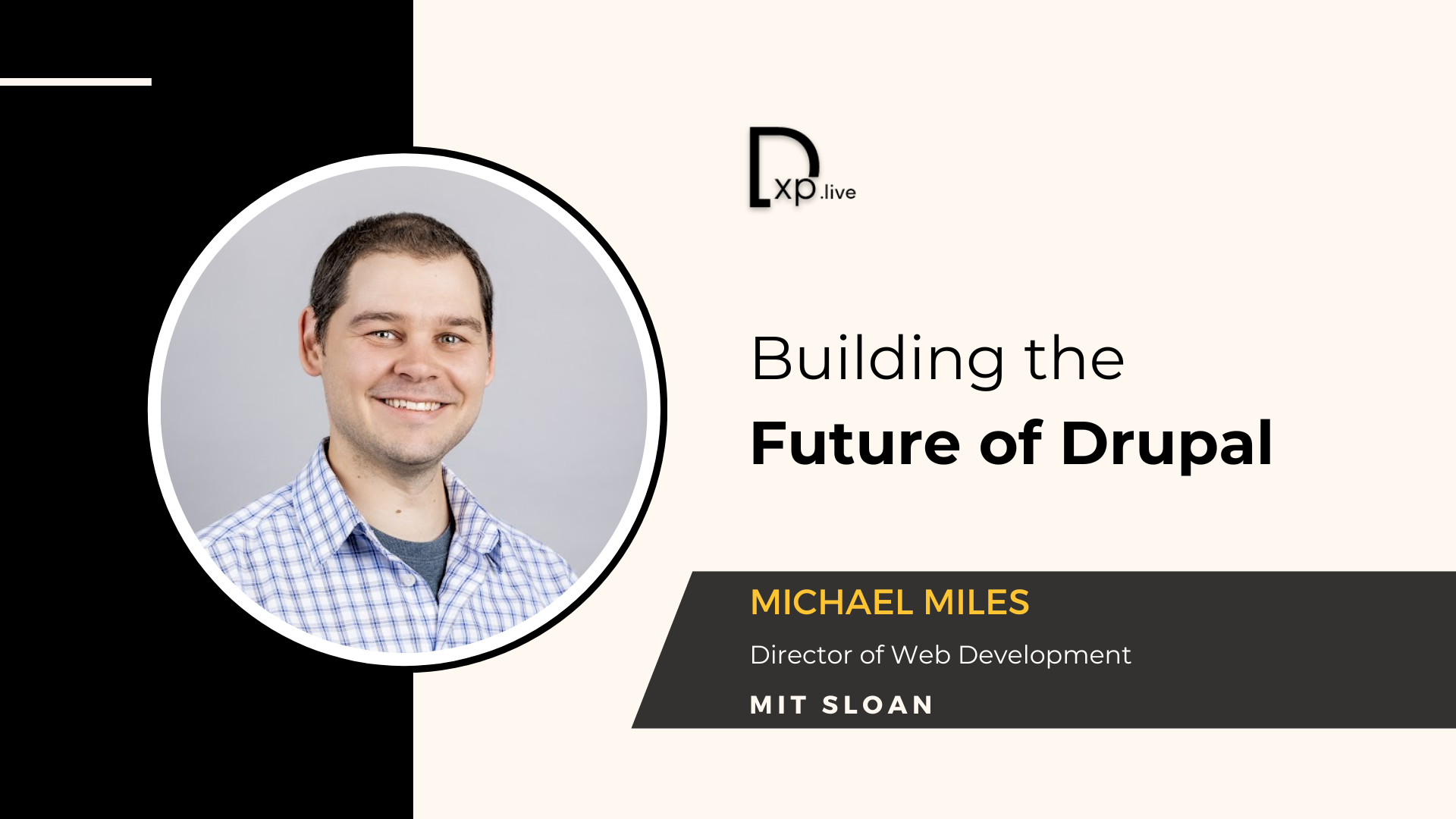
Michael Miles is a seasoned web development expert with over two decades of experience in the industry. Currently serving as the Director of Web Development at MIT Sloan, Michael has actively contributed to the Drupal community since 2008. His passion for development and open-source technologies has made him a trusted leader and mentor in the field.
Michael is an Acquia Triple Certified Drupal Expert, holding multiple certifications showcasing his expertise across frontend and backend development. In addition to his technical acumen, he is deeply involved in the Drupal community as a maintainer of several modules. His contributions extend to organizing community events like the Boston Drupal Meetup and speaking at various conferences, including DrupalCon North America.
Michael was also the host of the Developing Up podcast, where he shared his insights on the non-technical aspects of being a successful developer, emphasizing the importance of communication, leadership, and continuous learning in the evolving digital landscape.
With his deep technical expertise and commitment to community involvement, Michael is a prominent figure in both the Drupal and broader web development ecosystems.
INTRODUCTION
In today’s interview, we are thrilled to sit down with Michael Miles, an accomplished web developer and Director of Web Development at The MIT Sloan School of Management. With over 20 years of experience in the web development industry and more than 15 years as an active contributor to the Drupal community, Michael brings a wealth of knowledge and insight to the table. His impressive journey, from junior developer to an Acquia Triple Certified Drupal Expert, host of the popular Developing Up podcast, and speaker at conferences, reflects both his technical expertise and passion for mentorship.
Michael has worked on some of the most challenging projects in the industry, including architecting dozens of websites, maintaining and developing Drupal modules, and creating new tools, such as Drupal-focused AI agents. As a driving force behind the Boston Drupal Meetup, New England Drupal Camp, Drupal Events Organizers Working Group, and a regular speaker at Drupal events, Michael is committed to advancing the community while staying at the cutting edge of open-source technologies.
In this interview, we explore Michael’s career, his thoughts on the evolving web development landscape, and his advice for aspiring developers looking to make their mark in the open-source world. Whether you're a seasoned Drupal developer or just starting, Michael’s journey is sure to inspire and offer valuable insights into what it takes to thrive in the ever-changing world of web development.
With your extensive experience in Drupal since 2008, what significant changes have you observed in the platform over the years, and how have these changes influenced the way you architect Drupal-based solutions?
Michael: Drupal has gone through a lot of changes since 2008. One of the most significant shifts has been from a developer-focused tool to one that is more accessible to non-technical users. When I started, you really had to be a developer to build anything with Drupal, and even navigating the admin UI required developer guidance. Over time, the focus has shifted to improving the admin UI and user experience, making it a true content management system (CMS) that non-developers can use.
This shift has changed the way I architect solutions. Early on, I would build things as a developer, focusing on the end product. Now, I approach projects with the mindset of building something the client can use and manage after my job is done. It's all about creating solutions that others can maintain and grow, not just delivering a finished product.
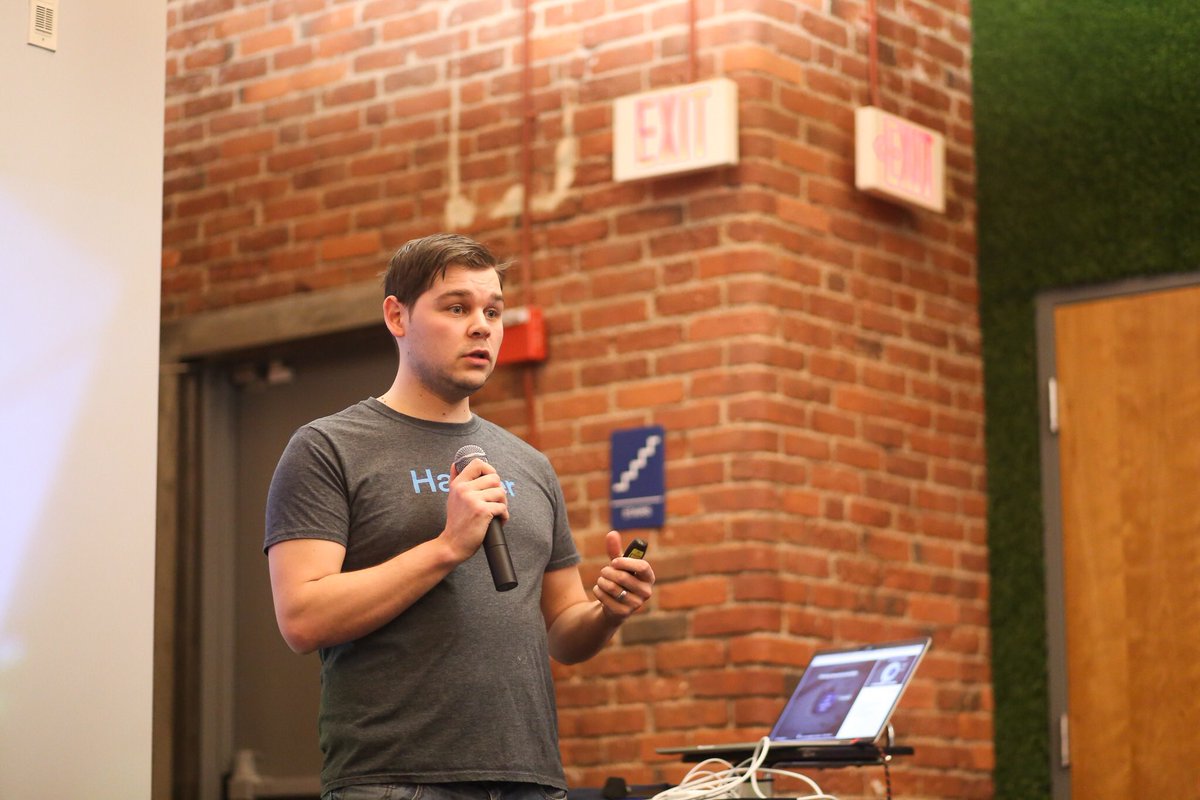
With certifications ranging from Site Builder to Frontend and Backend Specialist, you've covered nearly every aspect of Drupal development. How do you apply this knowledge to ensure that the projects you lead are secure, scalable, and aligned with best practices?
Michael: The certifications have helped me develop a broad understanding of Drupal, which is essential for building secure and scalable solutions. I’ve always believed that having a well-rounded skill set allows you to approach problems holistically. It’s not just about knowing how to build something but understanding why you’re building it that way, and what implications your decisions will have on performance, security, and long-term maintenance.
For instance, when working on a project, I often find myself switching between different roles—one moment I’m thinking like a site builder, structuring content and configuring views; the next, I’m diving deep into back-end development to create custom modules or APIs. Being able to bridge these different aspects of development helps me make smarter decisions. For example, I can evaluate whether a solution should be handled on the front end with javaScript or on the back end with optimized database queries.
Security is always top of mind. My back-end knowledge allows me to identify potential vulnerabilities early, like understanding the importance of sanitizing inputs or using proper access control measures. Meanwhile, front-end considerations like preventing XSS (cross-site scripting) attacks also come into play. These multiple perspectives ensure I don’t miss critical elements in security.
"Scalability, on the other hand, is another area where having multiple skill sets is crucial. Drupal is powerful, but it’s easy to build something that works for a few users but doesn’t scale well for larger implementations. My site-building knowledge helps me design systems that are not only scalable but also maintainable. For example, using multiple caching layers, deployment automation and best practices with code, I ensure that the solutions I build can grow alongside the business, accommodating higher traffic loads and more complex functionality".
Lastly, certifications have provided me with a sense of confidence that I’m applying the best practices in everything I do. Drupal has a strong set of coding standards and best practices, and adhering to them ensures that the code I write is not only functional but also maintainable by other developers. Certifications helped solidify this approach for me, allowing me to always look at a project holistically, balancing both technical and business needs.
In your podcast, Developing Up, you discussed the non-technical aspects of being a developer. How do you integrate these insights into your day-to-day work, especially when leading teams or managing large-scale Drupal projects?
Michael: As you step into more leadership roles as a developer, the non-technical skills become just as, if not more, important than your technical knowledge. You transition from being an individual contributor to someone who is leading others or explaining technical tasks to non-technical audiences. When I was moving into management roles and later aiming to become a VP of Technology at the agency I worked for, I realized I was great at the technical side of things but needed to develop my leadership skills.
That’s actually why I started the Developing Up podcast—it was a selfish project in a way. I wanted to build up these non-technical skills, like communication, conflict resolution, and leadership, by talking to others who were further along the path. It was about learning from their insights and gaining practical advice on how to lead teams effectively.
In practice, I find myself using these non-technical skills more often than my technical ones. When you’re working with teams, clients, or project managers, it's all about knowing how to communicate well, share ideas clearly, and resolve conflicts. These skills help me keep projects on track and ensure that everyone is aligned and informed, whether it's a client or a team member. While I still enjoy technical challenges, leadership has taught me that my role now is to guide others, not necessarily to be the one solving every problem hands-on.
One of the hardest conflicts I face is balancing my desire to still dive into code with the responsibility of overseeing the bigger picture. I might want to build that next feature or solve a technical problem, but I need to shift my focus to ensure the team has the resources and understanding to tackle it. Mentally, it’s a challenge to step back and let others take on the technical tasks while I provide the guidance and support they need to succeed.
At the end of the day, it’s about finding that balance between technical and non-technical skills. For any developer, especially those moving into leadership, it's critical to know when to step in and when to step back, to help your team grow and achieve their best work.
You mentioned working on a project for Johnson & Johnson that involved architecting a platform supporting over 750 websites. What were the key challenges, and how did your expertise in Drupal help overcome them?
Michael: I worked on this project about 8 years ago while at an agency. In collaboration with Acquia, we built a multi-site platform for Johnson & Johnson in the Acquia Site Factory. The project involved supporting over 750 websites, each representing different brands within their portfolio, ranging from consumer goods to medical supplies. One of the biggest challenges was creating a core codebase that was flexible enough to cater to the unique needs of each brand while maintaining consistency across the entire platform.
"Every brand had its own set of requirements, whether it was specific design elements, features, or user interactions. However, we also needed to ensure that there was a level of cohesion so the platform could be easily maintained and scaled. This is where Drupal’s flexibility came into play. My expertise in Drupal allowed us to utilize Drupal’s theming system effectively by creating parent and child themes. The parent theme maintained the core structure and functionality, while the child themes allowed us to customize the appearance and features for each brand without disrupting the core platform".
Another significant challenge was ensuring the platform was scalable and maintainable. Supporting over 750 sites means dealing with a large volume of traffic and regular updates, so performance optimization was crucial. Drupal and Acquia Site Factory capabilities were a key part of the solution, allowing us to manage multiple sites from a single codebase, reducing duplication of effort and ensuring consistency across the board.
Security was another important consideration, especially given the sensitive nature of some of the brands. Drupal’s robust security framework gave us the confidence that we could meet the strict security requirements without sacrificing flexibility or functionality.
Ultimately, my deep understanding of Drupal’s core capabilities helped us build a platform that was not only flexible and customizable but also scalable and secure, which was crucial for a client of this scale and complexity. The ability to balance customization with standardization allowed us to cater to each brand’s unique needs while maintaining a consistent and easily maintainable system across the entire portfolio.
You have helped organize the New England DrupalCamp since 2017. How do you think local meetups and community events contribute to the global growth and evolution of Drupal?
Michael: In addition to helping with the New England DrupalCamp,I also ran the Boston Drupal Meetup from 2016 until earlier this year. For me, these sorts of events—whether it’s a Drupal camp or even a local meetup—represent the heart of the Drupal community. That’s where you get the time to really learn what’s going on in Drupal and find ways to contribute back to the project.
"At almost every Drupal event, whether it’s a camp or a larger conference like DrupalCon, there’s always a contribution day (previously called "sprint days"). These are times dedicated to helping with the core of the Drupal project, and they’ve always been incredibly beneficial. It doesn’t matter if you’re brand new to Drupal or if you’ve been involved for years—everyone is welcome to contribute. I remember attending my first DrupalCon, and one of the first things I learned was how to set up my local environment to contribute to issues on drupal.org. Testing issues and helping out was my first step into giving back to the community, and it’s something that stuck with me".
One of the great things about these events is that you get to meet the best minds in the Drupal community. These camps and conferences bring people together, whether they’re seasoned experts or new developers, and provide a platform for sharing knowledge and ideas. That’s one of the reasons I love helping to organize the New England DrupalCamp—we get to attract speakers from all backgrounds. Some are well-established Drupal contributors, while others are new speakers who have something valuable to share with the community. We provide them with an outlet to contribute back, and it’s a great learning opportunity for everyone involved.
Personally, I find that attending events like DrupalCon always leaves me energized. I come back with a spark, inspired by the things I’ve learned. For example, I attended a talk by Matt Glaman about CKEditor 5 when we were working on the upgrade from CKEditor 4 to 5 in Drupal 9 and 10. After that session, I was so excited about the new features and couldn’t wait to figure out how we could implement it for our editors. That’s the kind of energy these events bring—they inspire you to take what you’ve learned and apply it to your own projects.
These meetups and camps also help build local connections. Through the Boston Drupal Meetup, I’ve met so many people in my area, and we’ve built a network of people who can turn to each other for support. For instance, I might run into an issue on a project, and I can reach out to someone I met at the last meetup who was working on something similar. These local connections are incredibly valuable—they become your go-to network when you need help or advice.
Drupal has this saying, "Come for the code, stay for the community," and it’s so true. The community is what makes Drupal unique. You won’t find this kind of strong, global community with other CMS platforms. The amount of knowledge-sharing and learning that happens at these events is incredible, and it changes you, both professionally and personally. It’s not just about the code—it’s about the relationships you build and the support you find within the community.
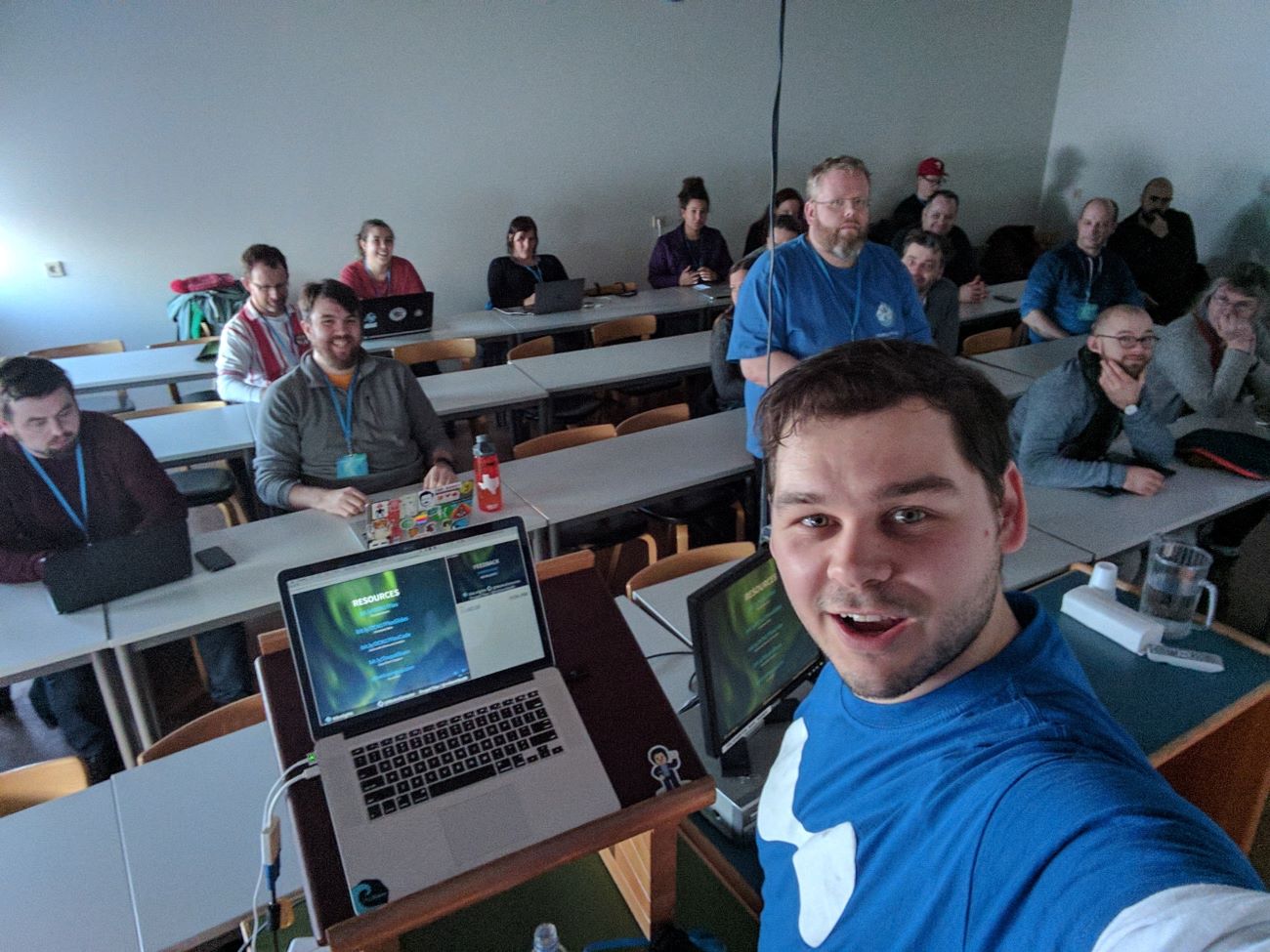
Given your expertise in both Drupal and various other technologies, how do you decide which technology stack to use when starting a new project, especially in the context of Drupal’s evolving ecosystem?
Michael: When it comes to deciding which technology stack to use, it really depends on the project requirements and the long-term goals of the client. If it’s a content-heavy project with a lot of dynamic content and complex workflows, Drupal is a great choice. I typically choose Drupal when the project involves extensive content management, multi-user collaboration, or if the client needs flexibility in managing content across multiple channels.
However, there are times when Drupal might not be the best fit. For example, if the project is more lightweight, I might lean towards a different framework like WordPress., But if the project is more API-driven or as a single page application, a framework like React might be more appropriate.
I also consider the team’s expertise. If the client’s team is more familiar with one technology over another, I’ll lean toward that, ensuring that the project can be maintained after the initial development phase. And, of course, the client’s budget and timeline are always factors. Sometimes, a simpler solution is better if it meets their needs without overcomplicating things.
Ultimately, it’s about choosing the right tool for the job. Drupal is incredibly powerful, but it’s not always the answer for every project. Understanding the project’s goals, the team’s strengths, and what technology can deliver the best value is what drives my decision-making process.
You’ve received recognition as an "Acquia Grand Master". How has this acknowledgment influenced your career, and what advice would you give to aspiring Drupal developers aiming for similar recognition?
Michael: I believe Acquia has now rebranded the title to "Acquia Triple Certified," but the recognition still holds great value. When I received this certification, I was working for an agency, and being able to say to clients, “Hey, we have Acquia-certified developers, including an Acquia Grand Master,” added a lot of merit to our skills and capabilities. It’s a form of validation for the client that you know what you’re doing. It gives them confidence that the people they’re working with truly understand Drupal and can deliver.
On a personal level, earning the certification helped me with imposter syndrome. As developers, we often struggle with self-doubt, wondering if we know what we’re doing or if we’re just figuring things out as we go. Getting certified was a proof to myself that I have the necessary skills and knowledge. It helped me realize that I wasn’t just winging it—I had genuinely built up the expertise and had the credentials to back it up.
For aspiring Drupal developers, I would say that pursuing these certifications is a great way to prove to yourself that you know what you’re doing. It’s a tangible acknowledgment of your skills. Beyond personal reassurance, certifications are also valuable for your career, whether you're working for an agency or seeking a new role. If you’re at an agency, having certified developers can influence client decisions and add credibility to the team. If you're job hunting, it's a strong addition to your resume, showing potential employers that you’re not just claiming expertise—you've earned certifications that back it up.
So for any developers aiming for this recognition, it's a great way to reassure yourself that you have the expertise, and it also gives clients or employers confidence in your abilities. It’s proof that you’ve learned these things and have the skills to build and deliver solutions effectively.
With your experience in both technical and non-technical aspects of development, what do you believe is the most underrated skill for a Drupal developer to succeed in today’s digital world? Are there any particular events coming up in this regard?
Michael: There are two key skills that come to my mind, and the first is communication. Being able to communicate technical ideas to non-technical people is crucial. This goes back to those soft skills that are essential for developers to build. In Drupal development, it's very rare to be working alone without needing to interact with others, whether it's clients, project managers, or fellow developers.
You need to be able to talk to clients and explain why a solution may not work, or suggest a different approach that could better meet their needs. Since they don't have the technical knowledge you have, it’s important to clearly communicate what you're trying to achieve and how it will solve their problem. On the other hand, you’ll also be working with other developers who may have different skill sets—like front-end developers or UX designers. Being able to effectively communicate with them about what you're trying to accomplish, what challenges might arise, or even helping them understand certain aspects of the project, is a very underrated yet valuable skill. I think more developers need to work on cultivating this skill, as it greatly impacts team collaboration and project success.
"The second skill is versatility—the ability to expand your skill set across multiple disciplines. You don’t need to be an expert in everything, but having some proficiency in related areas—like running JavaScript code, doing bash scripting for continuous deployment and integration, or even understanding how to use AI tools and prompt engineering—will change the way you approach problems. Cultivating the ability to quickly pick up new technologies and skill sets will allow you to tackle challenges from different angles, rather than approaching every Drupal problem the same way. You'll be able to select the best tool for the job, which will ultimately make you a more adaptable and successful developer".
Regarding upcoming events that support this blend of technical and non-technical growth, there are several worth noting. In the last four years, I've been working in higher education as the Director of Web Development for MIT Sloan, and I’ve become deeply involved in the higher-ed web development community. There’s the Digital Collegium Conference (formerly known as the HighEdWeb Conference), which isn’t a Drupal-specific event but is geared toward web development teams in higher education which takes place annually. This conference covers a wide range of topics, from managing internal politics to working with IT teams, as well as accessibility and product testing. It's a great event to explore both technical and non-technical aspects of web development.
Also, for New England DrupalCamp in November, we’re planning to have a Higher Ed Summit and training sessions, which will cover topics beyond just development, including project management, UX design, and accessibility. These events provide a great platform for aspiring Drupal developers to gain insights not just in technical aspects, but in the broader skill sets that are important for a successful career in Drupal.
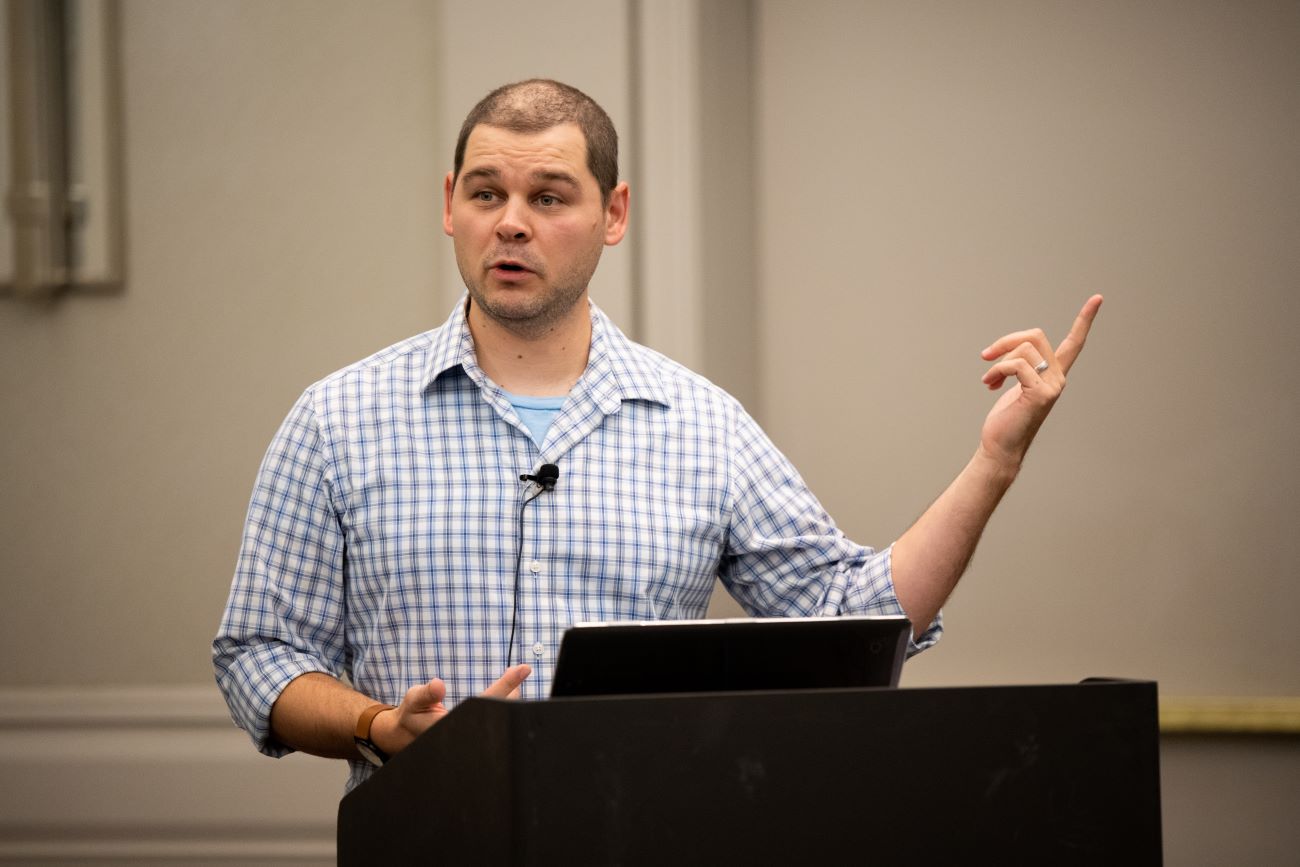
Looking ahead, what areas of Drupal or the broader open-source ecosystem are you most excited to contribute to? Are there any final thoughts that you can share with us?
Michael: I’m really excited about the Starshot initiative within Drupal, which aims to make the platform more accessible to non-developers by separating Drupal CMS from the framework. This will allow users to choose their path—whether they want to focus on development or use Drupal more as a CMS. It’s a huge step in making the platform more flexible and broadening its appeal to a wider audience.
I’m also excited about the integration of AI tools into development. Tools like GitHub Copilot are transforming the way we code by allowing developers to focus on solving big-picture problems while automating smaller, repetitive tasks. This is going to significantly change how we approach web development in the future. Instead of spending time on repetitive coding tasks, developers can use AI to help streamline that process, enabling them to focus more on strategy and innovation.
If I could share some final thoughts, I would say to any developers reading this interview: don’t be afraid to try something new. In the Drupal community, or even in development as a whole, nothing you build is going to be used for something as critical as, say, a nuclear reactor, so if you mess something up, it’s okay—you’ll always be able to fix it. It’s important to push yourself beyond your comfort zone and try things that might be just beyond your current skill set, because that’s where real growth happens. If you stick to what you already know, you’ll never learn or improve.
And remember, if you run into challenges, there’s a whole community of Drupal developers out there who can help you. Any mistake you make, you can go back and fix it. So, take those risks, try something new, and know that you have the support of a great community to help you along the way.


